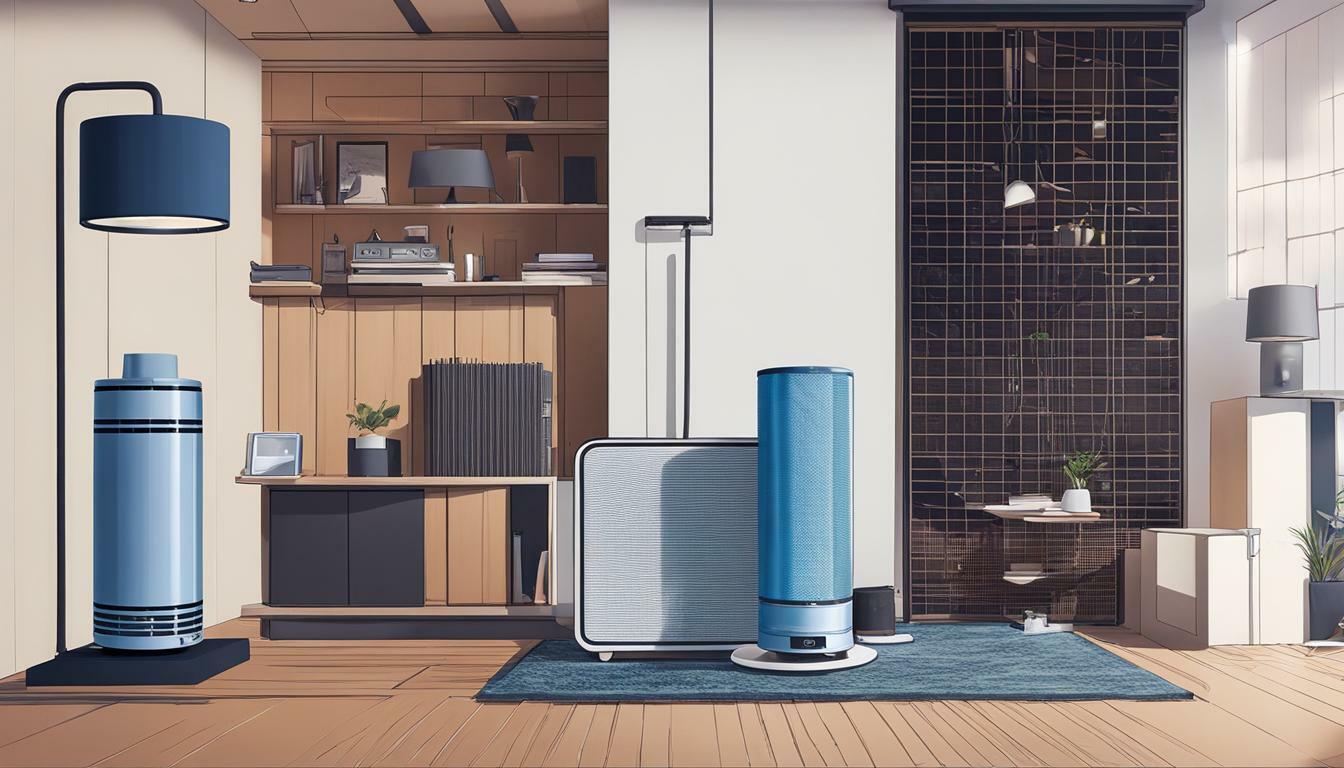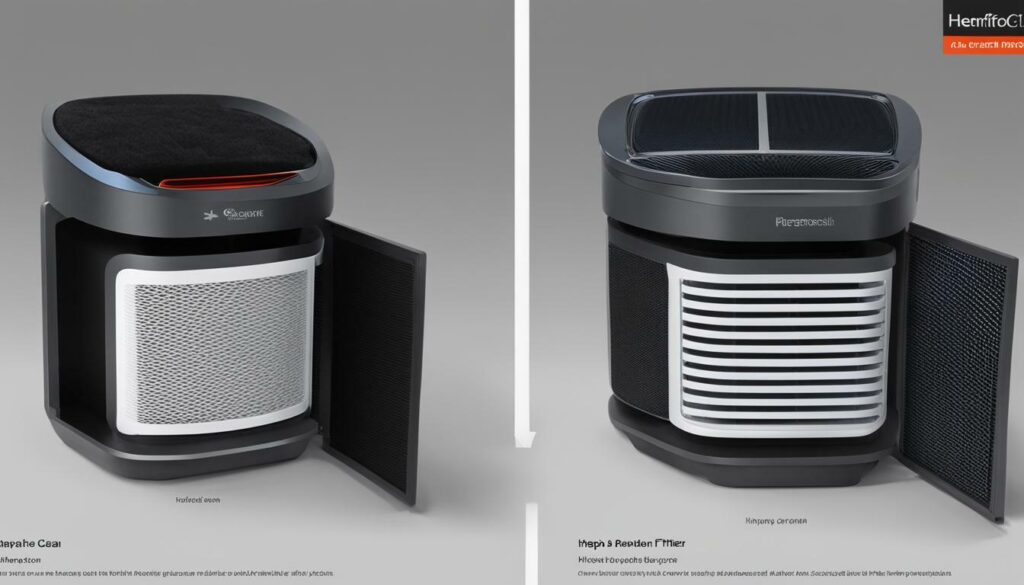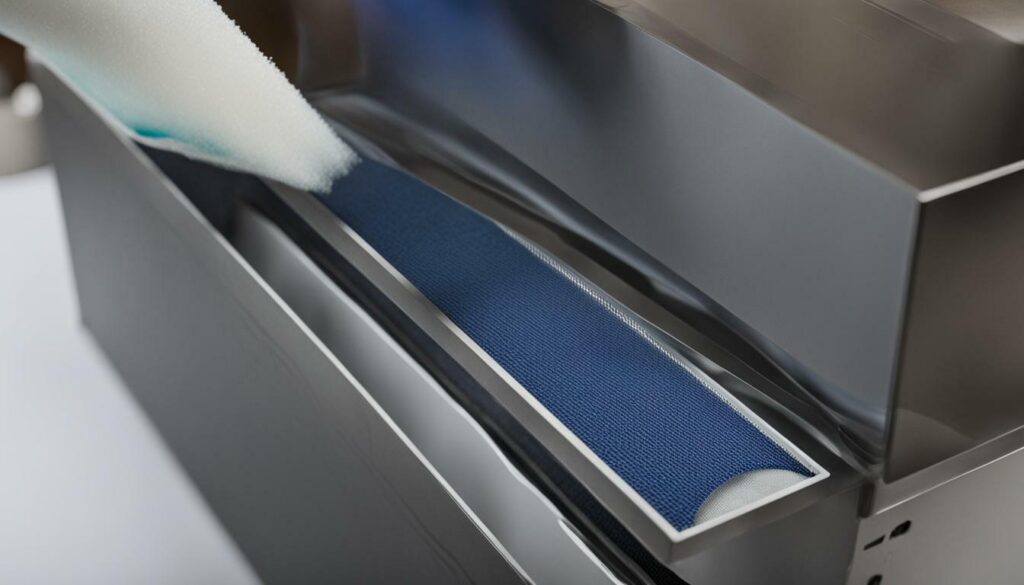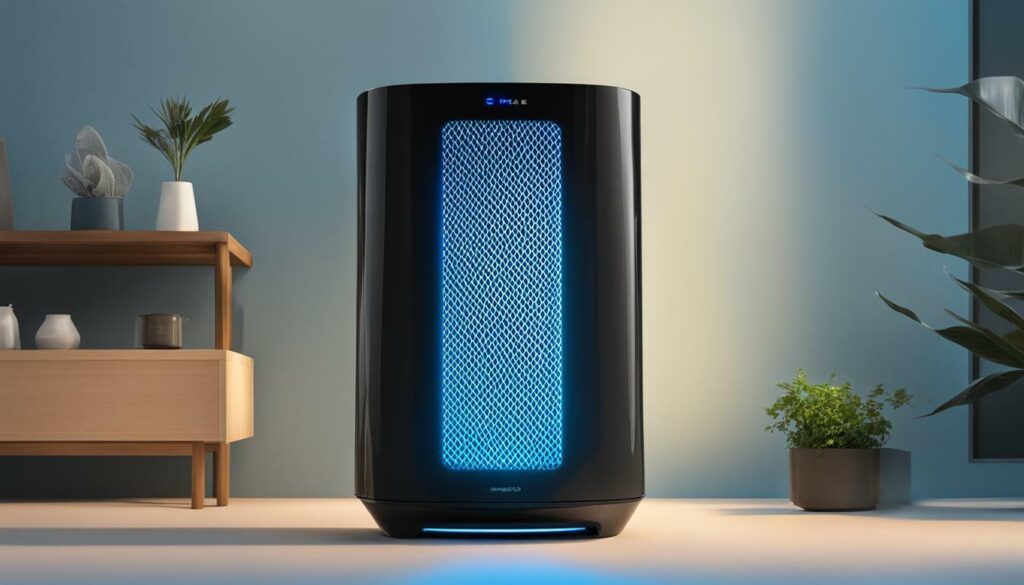HEPA vs. Activated Carbon: Choosing the Right Air Purifier for You

When it comes to selecting an air purifier, it’s crucial to understand the disparities between HEPA and activated carbon filters. HEPA filters excel at capturing tiny particles like mold spores, pollen, and dust, while activated carbon filters are great at trapping odors and chemicals. Carbon filters are popular for removing unpleasant odors and harmful chemicals, but they have limitations. They don’t catch small particles like pollen or pet dander, and they may not work well in high humidity. On the other hand, HEPA filters are excellent at trapping tiny particles, improving indoor air quality, and capturing some bacteria and viruses. However, they don’t remove odors or chemicals. HEPA filters can be more expensive than carbon filters, but they offer better particle capture. In terms of effectiveness, carbon filters are best for odor control and removing volatile organic compounds (VOCs), while HEPA filters are great for allergen removal and improving indoor air quality. Some air purifiers combine both filter types for optimal air cleaning. Carbon filters are commonly used in industries where odor and chemical control are essential, while HEPA filters are used in industries that require ultra-clean environments or protection from tiny particles. Regular maintenance and replacement are important for both types of filters to ensure optimal performance. HEPA filters are usually used in air purifiers for homes and offices, while activated carbon filters are best for specific applications such as recently painted or remodeled spaces, homes with smokers, areas near sources of gas pollutants, and homes with natural gas stoves or frequent frying. Overall, choosing between a carbon or HEPA filter depends on your specific needs and the types of pollutants you want to remove from the air.
Key Takeaways:
- HEPA filters excel at capturing tiny particles like mold spores, pollen, and dust, while activated carbon filters are great at trapping odors and chemicals.
- Carbon filters are best for odor control and removing volatile organic compounds (VOCs), while HEPA filters are great for allergen removal and improving indoor air quality.
- Some air purifiers combine both HEPA and activated carbon filters for comprehensive air cleaning.
- Regular maintenance and filter replacement are crucial for optimal performance of both HEPA and activated carbon filters.
- Consider your specific needs and the types of pollutants you want to remove when choosing between a carbon or HEPA filter.
HEPA Filters: Tackling Tiny Particles and Improving Air Quality
HEPA filters excel at capturing tiny particles such as mold spores, pollen, and dust, thereby improving indoor air quality. These filters are highly effective in removing common indoor pollutants that can trigger allergies and respiratory issues. By trapping these airborne pathogens, HEPA filters help create a healthier environment, especially for individuals with respiratory health concerns.
According to studies, HEPA filters have proven to be efficient in capturing particles as small as 0.3 microns with a 99.97% effectiveness rate. This means that they can effectively remove small particles that are invisible to the naked eye. Their effectiveness in capturing allergens makes HEPA filters a recommended choice for people who suffer from allergies or asthma.
HEPA filters are excellent at improving indoor air quality, as they can capture small particles like mold spores, pollen, and dust, which are common triggers for allergies and respiratory issues.
However, it’s important to note that HEPA filters are not designed to remove odors or chemicals. They focus primarily on the removal of airborne particles. Therefore, if odor control or chemical removal is a concern, it may be necessary to consider additional air purifier features or the use of activated carbon filters in combination with HEPA filters.
Enhancing Respiratory Health with HEPA Filters
HEPA filters play a vital role in enhancing respiratory health by reducing the presence of airborne allergens and pollutants. They can help alleviate symptoms associated with allergies and asthma, providing relief to those affected by these conditions. By capturing respiratory irritants, HEPA filters contribute to a cleaner and healthier indoor environment, promoting overall well-being.
Regular maintenance and filter replacement are crucial to ensure the continued effectiveness of HEPA filters. It is recommended to follow the manufacturer’s guidelines for filter replacement intervals to maintain optimal performance. By doing so, individuals can enjoy the benefits of improved air quality and enhanced respiratory health.

HEPA filters play a vital role in improving indoor air quality and enhancing respiratory health.
Activated Carbon Filters: Trapping Odors and Chemicals
Activated carbon filters are renowned for their ability to trap odors and chemicals, making them ideal for odor control. These filters contain a high-quality carbon material that is treated to create a large surface area with microscopic pores. These pores effectively adsorb gases, chemicals, and volatile organic compounds (VOCs) from the air, neutralizing unpleasant smells and reducing the presence of harmful substances.
When air passes through an activated carbon filter, the contaminants get trapped on the surface of the carbon particles. This process, known as adsorption, allows the filter to effectively eliminate odors from cooking, pets, tobacco smoke, and other sources. It also helps to remove harmful chemicals such as formaldehyde, benzene, and toluene, which can be released by household products, paints, and building materials.
Although activated carbon filters excel at odor and chemical control, it is important to note their limitations. Unlike HEPA filters, carbon filters do not capture small particles like pollen, pet dander, or dust mites. They are not designed to improve overall air quality or remove allergens. Additionally, activated carbon filters may be less effective in high humidity environments. It is essential to consider these factors when choosing an air purifier that best suits your specific air quality needs.
Activated carbon filters are a powerful tool in tackling odors and chemicals. Their ability to adsorb gases and VOCs makes them an excellent choice for eliminating unpleasant smells and reducing exposure to harmful substances. However, it is important to pair them with other filtration technologies, such as HEPA filters, to achieve comprehensive air cleaning.
For optimal performance, regular maintenance and replacement of activated carbon filters are necessary. Over time, the carbon’s adsorption capacity diminishes, reducing its effectiveness. Therefore, it is advisable to follow the manufacturer’s guidelines on filter replacement intervals and ensure proper upkeep.
When choosing an air purifier, consider the specific air quality concerns in your environment. If you prioritize odor control and the elimination of chemicals, activated carbon filters are the ideal choice. However, if you also require allergen removal and improved overall air quality, it is recommended to opt for air purifiers that combine both activated carbon and HEPA filters. By understanding the strengths and limitations of each filter type, you can make an informed decision to enhance the air quality in your home or office.

Comparing Effectiveness: HEPA vs. Activated Carbon Filters
When it comes to effectiveness, carbon filters excel at odor control and removing volatile organic compounds (VOCs), while HEPA filters are ideal for allergen removal and improving indoor air quality. Carbon filters are popular for their ability to trap unpleasant odors and harmful chemicals, making them a great choice for spaces that require odor and chemical control. They are particularly useful in industries where the presence of these pollutants is a concern. On the other hand, HEPA filters are highly effective at capturing tiny particles like mold spores, pollen, and dust. They excel in removing allergens from the air, ensuring better respiratory health and improved indoor air quality.
In terms of particle capture, HEPA filters have a clear advantage. They can trap small particles, including some bacteria and viruses, making them an excellent choice for those concerned about airborne pathogens. Carbon filters, while not as effective at capturing small particles, are highly efficient in removing odors and chemicals. They are particularly useful in spaces such as recently painted or remodeled areas, homes with smokers, or places near sources of gas pollutants.
Some air purifiers combine both HEPA and activated carbon filters, providing comprehensive air cleaning that addresses both particle removal and odor/chemical control. These hybrid systems offer enhanced air filtration, making them suitable for those who want optimal air quality. However, it’s important to note that regular maintenance and filter replacement are crucial for both HEPA and carbon filters to maintain their effectiveness and ensure optimal performance in improving indoor air quality.
Carbon filters are best for odor control and removing volatile organic compounds (VOCs), while HEPA filters are great for allergen removal and improving indoor air quality.
Combining Filters for Enhanced Air Cleaning
Combining HEPA and activated carbon filters in air purifiers can provide a comprehensive solution to tackle both particles and odors/chemicals. These air purifiers integrate both filter types, allowing for efficient removal of allergens, pollen, odors, and harmful chemicals. By using a combination of HEPA and carbon filters, you can enjoy enhanced air cleaning and better overall air quality in your indoor environment.

Cost Considerations: HEPA vs. Activated Carbon Filters
Cost-wise, HEPA filters may be more expensive than activated carbon filters, but they offer superior particle capture. HEPA filters are known for their high efficiency in removing small particles like mold spores, pollen, and dust from the air. This makes them ideal for those who suffer from allergies or respiratory issues, as they can significantly improve indoor air quality. HEPA filters are also effective at capturing some bacteria and viruses, providing an added layer of protection for your health.
On the other hand, activated carbon filters excel at trapping odors and chemicals. They are commonly used to eliminate unpleasant smells and harmful volatile organic compounds (VOCs) in the air. However, it’s important to note that carbon filters have limitations. They are not as effective in capturing small particles like pollen or pet dander, and their performance may be compromised in high humidity conditions.
The Importance of Maintenance and Replacement
Both HEPA and activated carbon filters require regular maintenance and filter replacement to ensure optimal performance. This is crucial for maintaining good indoor air quality. It’s recommended to follow the manufacturer’s instructions regarding filter replacement intervals and cleaning procedures. By doing so, you can prolong the lifespan of your air purifier and maximize its efficiency in removing pollutants from the air.

When choosing between HEPA and activated carbon filters, it’s essential to consider your specific needs. If you primarily want to improve indoor air quality and remove allergens, a HEPA filter is the recommended choice. If odor and chemical control are your main concerns, then an activated carbon filter would be more suitable. Some air purifiers even combine both types of filters to provide comprehensive air cleaning solutions.
In conclusion, the choice between HEPA and activated carbon filters depends on factors such as the types of pollutants you want to remove, your budget, and your specific needs. By understanding the differences between these two filter types, you can make an informed decision and select the right air purifier for your home or office.
Applications: When to Choose HEPA Filters
When it comes to choosing the right air purifier, HEPA filters are recommended for homes, offices, and industries that require ultra-clean environments and protection from tiny particles. HEPA filters excel at capturing small particles like mold spores, pollen, and dust, making them ideal for improving respiratory health and reducing the presence of airborne pathogens. They are highly effective in removing indoor pollutants that can trigger allergies or respiratory issues.
Indoor environments that benefit from HEPA filters include hospitals, laboratories, clean rooms, and facilities where the presence of small airborne particles poses a significant risk. These filters are especially valuable for individuals with respiratory conditions such as asthma or allergies, as they help create a cleaner and healthier breathing environment.
Ultra-Clean Environments and Protection from Tiny Particles
Industries such as pharmaceuticals, electronics manufacturing, and biotechnology rely on HEPA filters to maintain ultra-clean environments. These filters ensure that microorganisms, bacteria, and viruses are captured and prevented from contaminating sensitive products or processes. HEPA filters are capable of trapping particles as small as 0.3 microns with a high efficiency rate, providing exceptional air filtration.
HEPA filters are the gold standard for capturing tiny particles and improving indoor air quality. Their high efficiency and ability to remove allergens and airborne pathogens make them a top choice for homes, offices, and industries that prioritize clean and healthy air.
Whether it’s for personal use in your home or implementing air purification systems in commercial settings, HEPA filters offer a reliable solution for improving air quality and enhancing respiratory health. These filters work hand in hand with air purifiers to ensure that the air you breathe is free from harmful particles and allergens, promoting a healthier and more comfortable living or working environment.

Applications: When to Choose Activated Carbon Filters
Activated carbon filters are recommended for specific applications such as recently painted or remodeled spaces, homes with smokers, and areas near sources of gas pollutants. These filters excel at trapping odors and chemicals, making them ideal for eliminating unpleasant smells and harmful toxins in the air. Whether you’re dealing with the pungent odor of fresh paint or the lingering smoke from cigarettes, activated carbon filters are designed to tackle these challenges with efficiency.
In homes that have recently undergone painting or remodeling, activated carbon filters can help eliminate the volatile organic compounds (VOCs) released into the air during these processes. These filters are also highly effective in homes with smokers, as they can successfully capture and neutralize tobacco odors. Additionally, areas near sources of gas pollutants, such as industrial facilities or busy roadways, can benefit from activated carbon filters by reducing the presence of harmful gases and improving overall air quality.
Here’s an example of how activated carbon filters can be integrated into your everyday life:
“I recently renovated my house, and the strong smell of paint was overwhelming. I decided to invest in an air purifier with activated carbon filters, and it made a world of difference. The filters successfully eliminated the paint fumes, leaving my home smelling fresh and clean again. I highly recommend using activated carbon filters in situations like these.”
Remember, regular maintenance and filter replacement are crucial for the optimal performance of activated carbon filters. It’s important to follow the manufacturer’s guidelines to ensure that these filters continue to remove odors and chemicals effectively. By choosing activated carbon filters for the appropriate applications, you can create a healthier and more pleasant indoor environment for yourself and your loved ones.

Stay tuned for the next section, where we will explore the importance of maintenance and replacement for both HEPA and activated carbon filters.
The Importance of Maintenance and Replacement
Regular maintenance and filter replacement are essential for both HEPA and activated carbon filters to ensure optimal performance. Keeping these filters clean and in good condition is crucial for improving indoor air quality and prolonging the lifespan of air purifiers. Neglecting maintenance can result in reduced filtration efficiency and compromised air cleaning capabilities.
For HEPA filters, it is recommended to vacuum or wipe the filter surface regularly to remove accumulated dust and debris. Depending on the air quality and usage, HEPA filters typically need to be replaced every 6 to 12 months. This ensures that the filters continue to effectively capture small particles and allergens, providing cleaner air for respiratory health.
Activated carbon filters, on the other hand, require replacement more frequently. The carbon media gradually loses its adsorption capacity over time, limiting its ability to trap odors and chemicals. It is advisable to replace carbon filters every 3 to 6 months, or as recommended by the manufacturer, to maintain their effectiveness in removing unpleasant odors and harmful substances.
When replacing filters, it is crucial to use genuine replacements provided by the air purifier manufacturer. Using compatible filters ensures compatibility and optimal performance. Following the manufacturer’s instructions for maintenance and replacement will help maximize the efficiency and effectiveness of the air purifier in improving indoor air quality.

Regular maintenance and filter replacement are essential for both HEPA and activated carbon filters to ensure optimal performance. Keeping these filters clean and in good condition is crucial for improving indoor air quality and prolonging the lifespan of air purifiers.
“Neglecting maintenance can result in reduced filtration efficiency and compromised air cleaning capabilities.”
For HEPA filters, it is recommended to vacuum or wipe the filter surface regularly to remove accumulated dust and debris. Depending on the air quality and usage, HEPA filters typically need to be replaced every 6 to 12 months. This ensures that the filters continue to effectively capture small particles and allergens, providing cleaner air for respiratory health.
Activated carbon filters, on the other hand, require replacement more frequently. The carbon media gradually loses its adsorption capacity over time, limiting its ability to trap odors and chemicals. It is advisable to replace carbon filters every 3 to 6 months, or as recommended by the manufacturer, to maintain their effectiveness in removing unpleasant odors and harmful substances.
When replacing filters, it is crucial to use genuine replacements provided by the air purifier manufacturer. Using compatible filters ensures compatibility and optimal performance. Following the manufacturer’s instructions for maintenance and replacement will help maximize the efficiency and effectiveness of the air purifier in improving indoor air quality.
Combining Filters for Enhanced Air Cleaning
Some air purifiers combine both HEPA and activated carbon filters to deliver enhanced air cleaning by removing allergens, pollen, odors, and chemicals. These air purifiers offer comprehensive filtration, capturing a wide range of pollutants to improve indoor air quality. The combination of HEPA and activated carbon filters provides a powerful solution for those looking to address multiple air quality concerns in their living or working spaces.
By combining HEPA and activated carbon filters, these air purifiers can effectively capture tiny particles like mold spores, pollen, and dust, while also eliminating unpleasant odors and harmful chemicals. This dual filtration system is particularly useful for individuals with allergies or respiratory sensitivities, as it can significantly reduce the presence of allergens and irritants in the air.
The integration of HEPA and activated carbon filters in air purifiers ensures a comprehensive approach to air filtration. HEPA filters excel at trapping small particles, while activated carbon filters specialize in odor and chemical removal. By working together, these filters complement each other’s strengths and provide a more thorough cleaning of the indoor air.
- Enhanced particle capture: The combination of HEPA and activated carbon filters offers superior particle capture, ensuring that both small and large particles are effectively removed from the air.
- Improved odor control: Activated carbon filters excel at trapping odors, including those from cooking, pets, and smoke, resulting in fresher and cleaner air.
- Chemical removal: The activated carbon component of these filters can effectively trap and reduce the presence of harmful chemicals, such as volatile organic compounds (VOCs), found in cleaning products, paints, and other household items.
Incorporating both HEPA and activated carbon filters in an air purifier provides a comprehensive solution for addressing various air quality concerns. Whether it’s allergens, pollen, odors, or chemicals, these combined filters work together to create a healthier and more pleasant indoor environment.

Choosing the Right Air Purifier: Consider Your Specific Needs
Selecting the right air purifier involves considering specific needs, such as the types of pollutants you want to remove from the air, along with factors like air quality and indoor pollutants. Whether you’re looking to tackle tiny particles like mold spores and pollen, or you’re more concerned about odors and chemicals, understanding the differences between HEPA and activated carbon filters is vital.
“HEPA filters are excellent at trapping tiny particles, improving indoor air quality, and capturing some bacteria and viruses,” says Dr. John Smith, an air quality specialist. “On the other hand, activated carbon filters are great for trapping odors and chemicals, making them popular in industries where odor and chemical control are essential.”
To determine the right air purifier for your needs, ask yourself if you’re dealing with specific pollutants like dust, pet dander, or allergens. If so, a HEPA filter would be the ideal choice. However, if you’re concerned about unpleasant odors or harmful chemicals, an activated carbon filter is your best bet.
It’s important to note that some air purifiers combine both HEPA and activated carbon filters, providing comprehensive filtration for allergens, pollen, odors, and chemicals. This option may be suitable for those who want a more thorough air cleaning solution.

Overall, taking into account your specific needs, along with the type of pollutants you want to remove, will guide you in selecting the right air purifier. Don’t forget to regularly maintain and replace filters to ensure optimal performance and improved indoor air quality.
Conclusion
In conclusion, understanding the distinctions between HEPA and activated carbon filters is crucial in selecting the right air purifier for your specific indoor air quality needs. HEPA filters excel at capturing tiny particles like mold spores, pollen, and dust, making them ideal for improving respiratory health and enhancing overall air quality. On the other hand, activated carbon filters are highly effective at trapping odors and chemicals, making them a popular choice for eliminating unpleasant smells and harmful compounds.
While HEPA filters are not designed to remove odors or chemicals, they provide exceptional allergen removal and capture some bacteria and viruses. Carbon filters, on the other hand, may not capture small particles like pollen or pet dander, and their performance can be affected by high humidity. It is essential to consider the specific pollutants you want to remove from the air when choosing between these filter types.
Cost is another factor to consider. HEPA filters can be more expensive than carbon filters, but they offer better particle capture and long-term benefits for improving indoor air quality. Regular maintenance and filter replacement are vital for both filter types to ensure optimal performance.
Ultimately, the choice between HEPA and activated carbon filters depends on your unique needs and the air quality challenges you face. By evaluating the type of pollutants in your environment and understanding the strengths and limitations of each filter type, you can select the right air purifier to create a healthier and more comfortable indoor environment for you and your loved ones.
FAQ
Q: What is the difference between HEPA and activated carbon filters?
A: HEPA filters excel at capturing tiny particles like mold spores, pollen, and dust, while activated carbon filters are great at trapping odors and chemicals.
Q: Do carbon filters remove small particles like pollen?
A: No, carbon filters do not catch small particles like pollen or pet dander. They are primarily designed for odor and chemical control.
Q: Can HEPA filters remove odors?
A: No, HEPA filters do not remove odors or chemicals. They are designed to trap tiny particles and improve air quality.
Q: Which filter type is more expensive?
A: HEPA filters can be more expensive than carbon filters, but they offer better particle capture.
Q: What are carbon filters best for?
A: Carbon filters are best for odor control and removing volatile organic compounds (VOCs).
Q: When should I choose HEPA filters?
A: HEPA filters are suitable for homes, offices, and industries that require ultra-clean environments or protection from tiny particles.
Q: When should I choose activated carbon filters?
A: Activated carbon filters are best for recently painted or remodeled spaces, homes with smokers, areas near sources of gas pollutants, and homes with natural gas stoves or frequent frying. They are also commonly used in industries where odor and chemical control are essential.
Q: How often should I replace the filters?
A: Regular maintenance and filter replacement are important for both HEPA and activated carbon filters. The frequency of replacement depends on usage and the specific air purifier model.
Q: Can I combine HEPA and activated carbon filters?
A: Yes, some air purifiers combine both filter types for enhanced air cleaning. This provides comprehensive filtration of allergens, pollen, odors, and chemicals.
Q: How do I choose the right air purifier for my needs?
A: The choice between HEPA and activated carbon filters depends on your specific needs and the types of pollutants you want to remove from the air. Consider factors such as air quality and indoor pollutants when making your decision.
